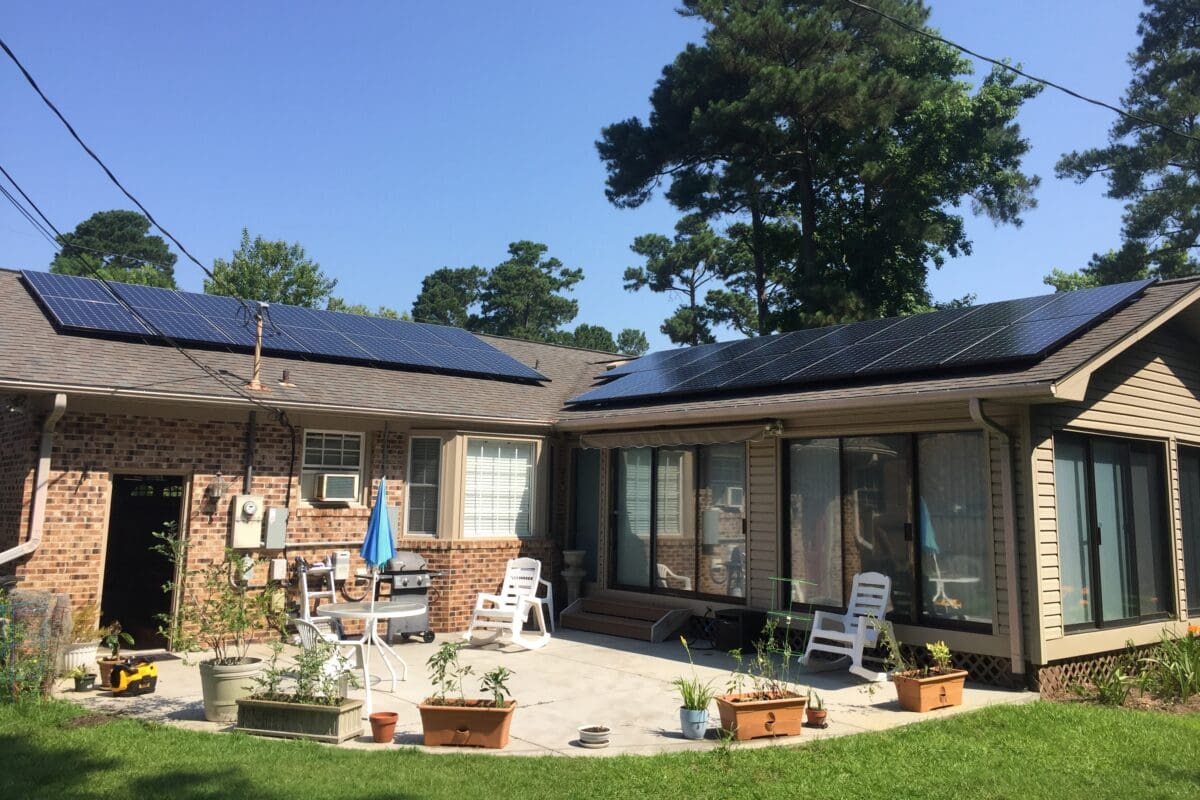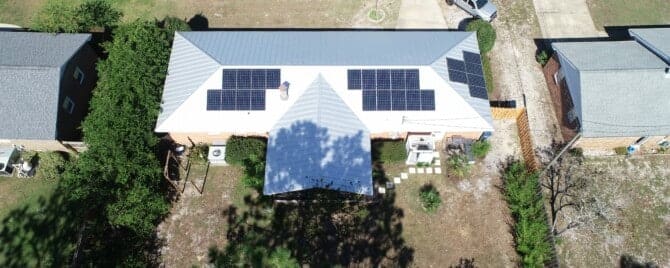Your home will not consume 100% of the energy your solar panels produce, as soon as it’s produced. You don’t always have every appliance and light turned on, every device plugged in to charge, and your HVAC running constantly. You might have several running at once, but your solar system is designed to offset a larger percentage of your energy consumption.
So where does the excess energy go? It has to be stored somewhere–either in your home battery or back out in the power grid until your home starts consuming more energy than the panels immediately produce–i.e. on cloudy days or at night. If you have a home battery, the power will remain within your closed system. If you don’t have a home battery, however, your excess power must be sent out to the power grid according to your utility company’s net metering structure.
What is Net Metering?
Net metering is a utility service where electricity generated from a solar system is used by the grid and the homeowner receives a credit to their account for the energy sent to the grid (usually at periods of peak demand) or is credited at the same rate as the retail electricity price (measured in kilowatt hours). The customers still have to pay the monthly difference between the energy used and their energy generated, but net metering allows for an easy way to generate your own energy while still connected to the grid.

How Much Credit Do You Get Back?
Across most of the United States, utility companies offer a 1:1 net metering structure. Essentially, for every kWh produced by a home’s solar system, the homeowner receives the equivalent back in credit.
Some utility companies, however, don’t have a 1:1 structure, rather crediting at a set rate and charging based on the time of use. For these customers, we generally recommend home battery installations, so they can control when and what energy they export to the grid.
Can You Profit from Solar Panels?
Solar panels are a form of home improvement, not a financial product. To best determine the financial impact of installing solar panels for your family, give us a call at (910) 409-5533. Everything is dependent on your utility company and we’ve worked with all of the ones within our region. Where some utility companies wipe out all unused, excess credits once a year, others will cut you a check at the end of each month for any overages. Our goal with each installation is to save you money in the long run, or even on day one if you’re financing!
Let us know if you have any questions or are you’re interested in taking the next step in your solar journey.



